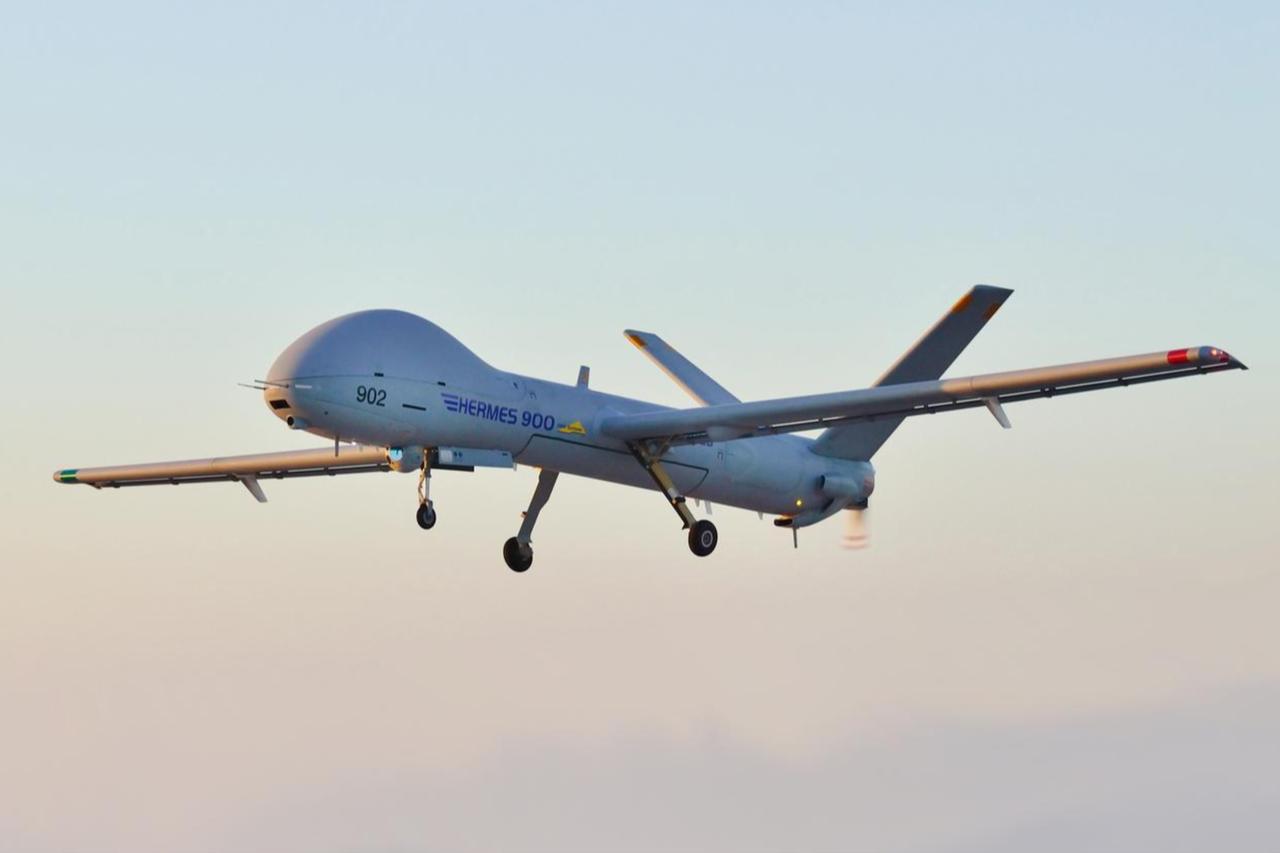
Switzerland’s multi-year drone procurement deal with Israel’s Elbit Systems is drawing renewed scrutiny amid revelations that the Hermes 900 reconnaissance UAVs delivered to the Swiss military lack basic detect-and-avoid capabilities. The drones — intended to serve as autonomous surveillance assets — reportedly cannot detect or avoid birds, gliders, or other low-altitude flying objects, raising safety concerns in Swiss airspace.
The controversy is amplified by the Hermes platform’s troubled track record. In recent years, Hermes drones have been involved in multiple crashes and shootdowns in Lebanon, Chile and very recently in Iran during the recent rounds of conflict between Israel and Iran.
Now, Swiss defense officials are not only facing rising domestic criticism over technical shortcomings and delays, but also broader questions about the wisdom of investing in a system with a documented history of failure.
The shortcomings have forced the Swiss army to assign helicopters to escort the drones during missions, increasing operational costs and undercutting the intended benefits of UAV autonomy.
The drone program, originally expected to be fully operational by 2019, is now projected to reach readiness no earlier than 2029. Only four of the six drones have been delivered so far, and none are fully mission-capable.
One persistent challenge has been Switzerland’s insistence that the drones land autonomously without GPS, a feature intended to safeguard operations in case of signal denial. Elbit proposed design modifications, but Swiss officials now admit they were likely too optimistic in trusting early commitments.
Switzerland’s Federal Assembly finance committee has pointed to the drone procurement as part of a broader pattern of problems within the defense ministry. In a formal letter, the committee noted with “great concern” the increasing delays and risks facing key projects and called for stronger parliamentary oversight.
With CHF19 billion worth of defense programs currently in motion, the committee warned that inadequate supervision, rising costs, and unmet targets have become systemic issues.
In public remarks, Urs Loher, director of Armasuisse (the Swiss armaments office), confirmed that without the detect-and-avoid system, the drones require manned escort aircraft to operate safely. This includes helicopters or fixed-wing support planes. An external assessment has confirmed that integrating the system is technically feasible, but software development delays remain unresolved.

Concerns over the Hermes system’s operational durability intensified after footage emerged showing an Iranian air defense unit shooting down a Hermes UAV during a recent regional escalation. While not linked directly to the Swiss fleet, the incident highlighted the platform’s vulnerability in contested airspace.
That vulnerability was further underscored when Hezbollah downed an Israeli Hermes 900 drone over southern Lebanon. The Israeli military confirmed the incident, saying the UAV was intercepted by a surface-to-air missile. Hezbollah later claimed responsibility for the shootdown, marking a rare direct engagement with Israeli UAV assets over Lebanese territory.
In Latin America, operational reliability issues have also surfaced. In February 2023, a Chilean Air Force-operated Hermes 900 crashed into the Cautín River in the Araucanía region while conducting wildfire monitoring missions. The drone had been supporting Chile’s national forestry agency, CONAF, during an active fire response. The cause of the crash remains unclear, but the incident raised additional concerns over the drone's performance in civilian support roles.
Together, these incidents have contributed to a growing perception that the Hermes platform — despite its global use — may fall short of expectations in both military and civilian operational environments.
After years of complications, Swiss authorities are now openly considering terminating the Hermes drone contract. Loher, who previously dismissed cancellation as unrealistic, acknowledged that the ministry may have reached “the last straw.” Elbit missed key delivery milestones, including a final extension for the automatic landing system that expired on September 30.
Loher warned that cancellation would likely spark legal action by Elbit, potentially resulting in a prolonged and costly dispute.